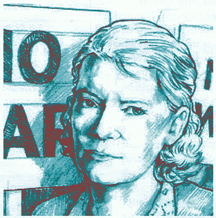
|
|
The movement publishes a tabloid-size organ seven times a year, The Catholic Worker. Started by an itinerant French worker-scholar (and illegal immigrant) Peter Maurin and Dorothy Day, a veteran left-wing journalist and Catholic convert, the paper was first sold in New York City, at a Communist Party May Day rally in Union Square, for a penny a copy, in 1933... (Click here to view full article by Tom Cornell who recently visited the Rochester Catholic Worker and led an insightful discussion about the early days of the Catholic Worker.) |
|
The Catholic Worker Movement described in 120 wordsThe Catholic Worker Movement began simply enough on May 1, 1933, when a journalist named Dorothy Day and a philosopher named Peter Maurin teamed up to publish and distribute a newspaper called "The Catholic Worker." This radical paper promoted the biblical promise of justice and mercy. Our Aim Celebrating 75 Years: 1933--2008 The Works of Mercy are an abiding norm for the Catholic Worker Movement. Dorothy Day and Peter Maurin lived lives of "active love" built on these precepts. |
|
| The corporal works of mercy: feeding the hungry giving drink to the thirsty clothing the naked offering hospitality to the homeless caring for the sick visiting the imprisoned burying the dead The spiritual works of mercy: admonishing the sinner instructing the ignorant counseling the doubtful comforting the sorrowful bearing wrongs patiently forgiving all injuries praying for the living and the dead |
Some Sources In Scripture: Matthew 25:31-46 Isaiah 58:6-7 Hebrews 13:3 1 John 3:17 Tobit 4:5-11 Matthew 6:2-4 Luke 3:11, 11:41 James 2:15-16 |
